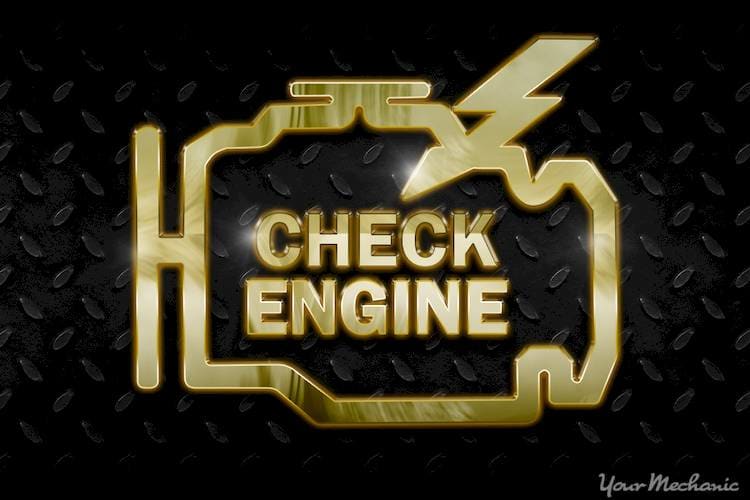P0009 code definition
The P0009 code is associated with your engine’s mechanical timing.
It may also be accompanied with the codes: P0008, P0010, P0011, P0012, P0013, P0014, P0015, P0016, P0017, P0018, P0019, and many more.
What the P0009 code means
P0009 is a generic OBD-II code indicating an issue with the engine control module (ECM) detecting a variation in the mechanical timing between the crankshaft and bank 2 camshaft.
The ECM uses sensors to detect the position of the crankshaft and camshaft(s). From these sensor signals, the ECM controls ignition and fuel timing under various speeds and loads. The code will illuminate the Check Engine Light and possibly reduce engine performance.
What causes the P0009 code?
The Engine Positions System Performance Bank 2 code may have several causes:
- Engine timing out of sync
- Worn timing components (chains, gears, guides)
- Crankshaft or camshaft sensor malfunctions
- Wiring damage
- ECM software out of date
- ECM internal damage
What are the symptoms of the P0009 code?
The P0009 code will produce a Check Engine Light on the instrument panel / dashboard. It will likely affect:
- Engine idle quality
- Fuel economy
- Overall engine performance
How does a mechanic diagnose the P0009 code?
P0009 is properly diagnosed with an advanced scan tool capable of factory sensor readings and codes (not just one from your local auto parts store) to start. A qualified technician can read the data from the scan tool to determine when and where the problem occurred or if it is still occurring. They may clear the code from the ECM and test drive the vehicle while monitoring the scan tool data to see if the fault returns or if it is intermittent.
If the fault is intermittent, then a visual inspection or wiggle test of the wiring may produce more results. Otherwise the vehicle will have to be driven until the problem becomes more persistent.
If the fault returns immediately, the scan tool and information from professional resources should be able to narrow down the problem. Otherwise, a digital voltage scope used to monitor the sensor signals will be required. The signals will indicate what the ECM is seeing and if they are correct. Removal of the front timing cover of the engine may be required to verify the timing.
Based upon the results of the testing, possibly clearing the code, and a road test while monitoring the data, further diagnosis may be required. Diagnosis will require multiple tools such as:
- An advanced scan tool to read the ECM data values
- A digital voltage scope with attachments
- Basic hand tools to access the sensors and timing components
Common mistakes when diagnosing the P0009 code?
It is common to see inexperienced technicians assume that the engine needs a new timing chain or belt based upon this code. Without performing a diagnostic procedure, a vehicle owner could spend several hundred dollars to not solve their problem.
The code could be solved with a simple computer learn procedure or reprogramming. I have seen vehicles that have come in from other repair shops after having spent hundreds of dollars to only fix their issue in less than an hour.
Having a proper diagnosis is always recommended before replacing components based upon the code alone.
How serious is the P0009 code?
The P0009 fault code may cause your vehicle to have:
* Lower fuel economy
* Idle instability
* Reduced power
* Potential for future engine damage
* Inability to pass emissions testing
A qualified technician can diagnose the problem with proper tools and can verify these potential issues and the effects to your other systems.
What repairs can fix the P0009 code?
The most common procedure to repair the P0009 code is as follows:
Connect a professional scan tool to verify the code exists.
Perform research from professional sources for testing and values based upon the code.
Check for any other fault codes which may be related to the issue and perhaps clear the fault codes to see which fault codes return.
Analyze scan tool data from the ECM related to the code and road test the vehicle while analyzing the scan tool data from the ECM. Verify the P0009 code returns or the symptoms exist.
Visually inspect all of the items listed above (noises, wiring, etc.).
Further diagnose the problem with the special tools listed above if the problem appears to repeat.
The signals and wiring from the sensors require analyzing from a digital voltage scope to determine where the problem exists.
If the signals and scan tool values are within specification, then removal of the timing/front engine cover may be required.
Verify the timing marks on the crank and camshaft sprockets align.
Inspect the condition of the timing chain/belt and guides for signs of wear.
Replace the faulty component found during the above testing
Engine timing between the crankshaft and camshaft(s) is critical to the performance and smoothness of the engine. The code typically means that the timing is not aligned thus causing performance issues.
The code is most commonly found in Chevrolet, Subaru, and Suzuki vehicles, although I have seen it in other makes. On higher mileage vehicles, I usually suspect the timing chain stretching or the timing chain guides wearing down allowing the timing to change slightly.
On lower mileage vehicles, I suspect an ECM software update issue or a weak crankshaft or camshaft sensor signal giving incorrect signals.
In all of these scenarios, a knowledgeable technician with proper tools and professional resources will be able to determine the true fault behind the P0009 code.
Need help with a P0009 code?
YourMechanic offers certified mobile mechanics who will come to your home or office to diagnose and repair your vehicle. Get a quote and book an appointment online or speak to a service advisor at 1-800-701-6230.
Check Engine Light
P0009
trouble codes





